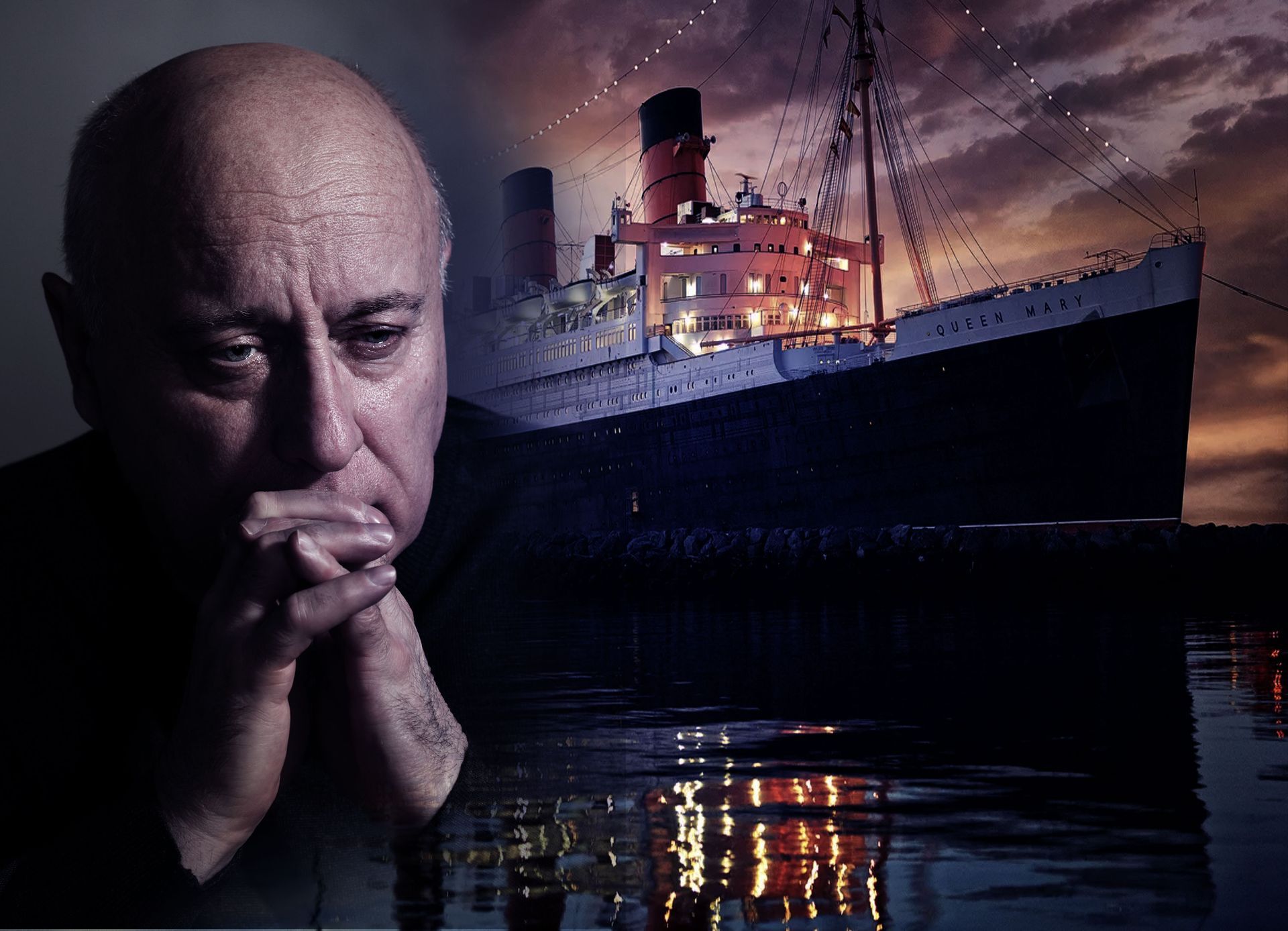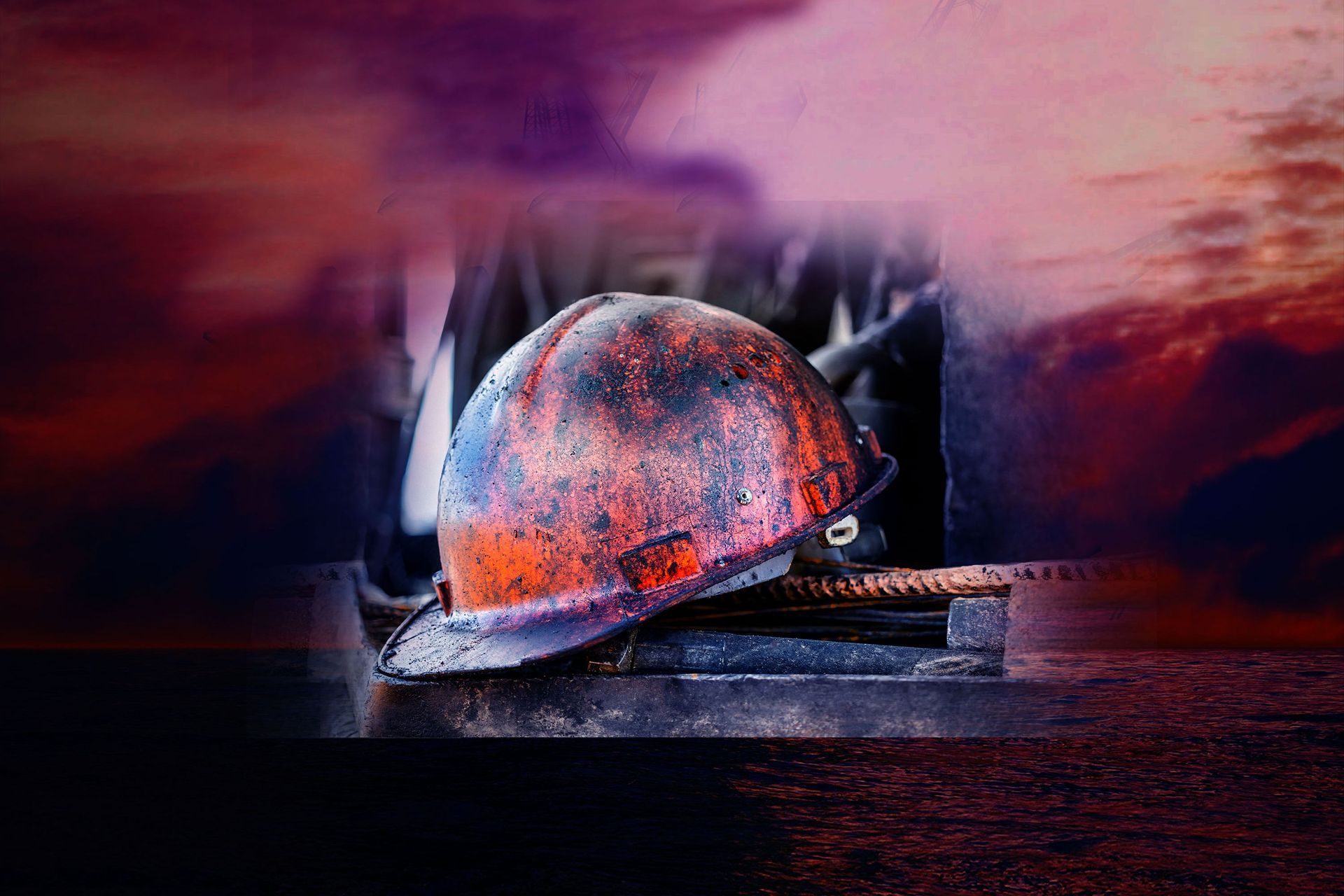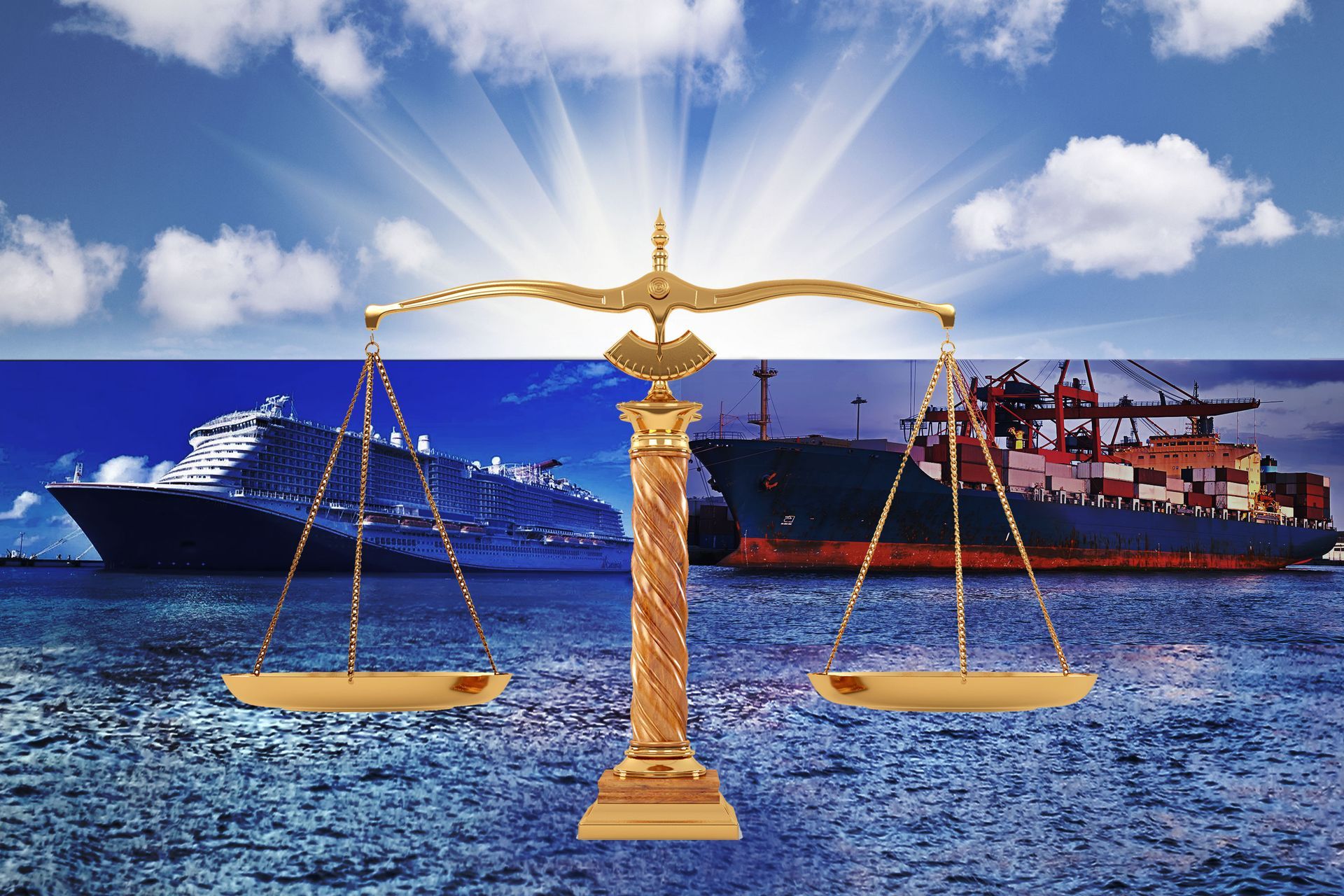Looking for a Maritime WRongful Death Lawyer to represent you?
Maritime Wrongful Death Lawyer : Offshore Negligent Death Attorney
Navigating the Complexities of Maritime DOSHA Death Cases: Expert Legal Insight
Earth’s vast seas and the vessels that navigate them present potential dangers to maritime workers and passengers, so when a vessel carrying human passengers ventures onto the oceans, it is imperative that owners and crew members make every effort is made to safeguard lives. This means having safety measures and procedures in place and training personnel to adhere to them on a daily basis, as well as making sure workers know how to respond in a crisis. If tragedy does strike your family on the open water, you need a top maritime wrongful death lawyer who is experienced with DOHSA** cases to help you through this difficult process.
** Death On the High Seas Act (DOHSA)
- The DOHSA, enacted in 1920, provides a remedy for families of individuals who die due to wrongful acts, neglect, or default that occur more than three nautical miles from the shore of the United States.
- DOHSA applies to all individuals, not just seamen, who die on the high seas, which is defined as waters more than three nautical miles from the U.S. coast. It covers deaths resulting from maritime accidents, including those involving commercial airlines and other types of vessels.
- Under DOHSA, the family of the deceased can seek compensation for pecuniary losses (economic damages), such as loss of support, services, and funeral expenses. However, DOHSA does not allow for compensation for non-economic damages like pain and suffering or loss of companionship.
- Unlike the Jones Act, DOHSA does not require proof of negligence; it only requires that the death was caused by a wrongful act or neglect
The Jones Act applies to incidents that occur on vessels in navigation, which can include coastal waters, rivers, and lakes. DOHSA is limited to deaths that occur more than three nautical miles from the U.S. shore.

FREE Maritime Wrongful Death CASE CONSULTATION
Take advantage of the free case review by an experienced maritime wrongful death attorney at Gordon & Elias LLP to learn what options are available to help you win a monetary recovery for a death on the high seas. We have extensive experience handling DOSHA cases in the US. We will give you the attention you deserve. Call for an appointment today. We have an office in Houston as well as a Rio Grande Valley office in Edinburg, Texas.
NO UPFRONT FEES
After a maritime wrongful death do not wait to contact an offshore accident attorney. An experienced maritime lawyer from Gordon & Elias, LLP will review your case and explain your rights for free. Most personal injury lawyers handle cases including maritime wrongful deaths on a contingent fee bases. Therefore the consultation is free, but a percentage on the amount recovered, usually 33.33%, will be taken as the maritime injury lawyer's fee.
Contact Gordon & Elias, LLP today to learn how we can help you recover the compensation you deserve. The consultation is completely free. We handle all the costs of investigating and pursuing your claim, and you only pay us if we recover money for you.
Do not immediately accept an insurance settlement if an insurance company contacts you.
We strongly advise you to first speak with a maritime injury lawyer.
Call us at (800) 773-6770 to discuss the details of your accident and injury claim right away.
We can provide trustworthy legal advice and guide you through the rest of the steps toward obtaining fair and full financial compensation.
TOP CAUSES OF DOSHA LAWSUITS: CATASTROPHIC DEATHS ON THE HIGH SEA
The Death on the High Seas Act (DOSHA) provides the legal framework for lawsuits involving catastrophic deaths that occur on the high seas. Here is a list of potential causes or grounds for DOSHA lawsuits related to catastrophic deaths affecting both seamen and non-seamen:
Negligence
- Failure to Maintain Ship: Lawsuits may arise if it is proven that the shipowner, operator, or crew neglected maintenance, leading to mechanical failure or structural defects that caused the death.
- Inadequate Safety Measures: Lack of proper safety equipment, training, or emergency procedures can be grounds for a negligence claim under DOSHA.
Unseaworthiness
- Defective Vessel: If a vessel is deemed unseaworthy (not fit for its intended purpose), and this condition contributed to the death, a lawsuit may be filed.
- Faulty Equipment: Use of defective or improperly maintained equipment leading to accidents or death can be grounds for a lawsuit.
Mechanical Failures
- Engine or Steering Malfunctions: Lawsuits can be filed if mechanical failures due to negligence or poor maintenance result in catastrophic incidents, such as collisions or capsizing.
- Hull Breaches: If a hull breach due to structural failure leads to a death, the responsible parties may be sued under DOSHA.
Shipwrecks and Collisions
- Navigational Errors: Mistakes made by the crew in navigating the ship that lead to collisions, grounding, or shipwrecks can be grounds for legal action.
- Poorly Maintained Navigation Equipment: Failure of radar, GPS, or other navigational tools due to neglect may lead to lawsuits.
Piracy and Armed Attacks
- Inadequate Security Measures: Failure to provide sufficient security against piracy or terrorist attacks can be grounds for a lawsuit if it results in death.
- Delayed Response: If the ship's crew or company failed to respond adequately to a threat, leading to death, a DOSHA lawsuit may be filed.
Fires and Explosions
- Faulty Electrical Systems: Lawsuits may arise if it is proven that fires or explosions were caused by defective or poorly maintained electrical systems.
- Improper Handling of Hazardous Materials: Failure to follow safety protocols when handling dangerous cargo can lead to catastrophic incidents, making the responsible parties liable.
Man Overboard Incidents
- Failure to Rescue: If a crew member or passenger falls overboard and the ship's crew fails to take appropriate action, a lawsuit can be filed.
- Inadequate Lifesaving Equipment: Lack of proper life vests, lifeboats, or other safety gear can lead to lawsuits under DOSHA.
Infectious Disease Outbreaks
- Failure to Quarantine: If a contagious disease spreads on board due to the failure to implement proper quarantine measures, resulting in death, the shipowner or operator could be sued.
- Lack of Medical Care: Inadequate medical facilities or delayed medical treatment leading to death may be grounds for legal action.
Chemical and Toxic Exposures
- Exposure to Hazardous Materials: If a death occurs due to exposure to toxic substances on board, lawsuits may be filed against the responsible parties for negligence or failure to warn.
- Environmental Contamination: Spills or leaks of hazardous materials leading to death can also lead to DOSHA lawsuits.
Accidents Involving Heavy Machinery
- Defective Machinery: If machinery used in loading, unloading, or other ship operations is defective and causes a fatal accident, a lawsuit may be filed.
- Improper Training: If the crew was not adequately trained to operate heavy machinery and this led to a fatal accident, the responsible parties may be held liable.
Lack of Proper Safety Protocols
- Failure to Enforce Safety Regulations: If safety regulations are not properly enforced, leading to a catastrophic incident and death, a DOSHA lawsuit may be filed.
- Inadequate Emergency Response: Poor or delayed response to emergencies that result in death can lead to legal action.

FEDERAL LEGISLATION TO PROTECT SURVIVING FAMILIES: DOHSA
When a seaman or passenger dies more than three nautical miles from shore due to someone else’s negligence, the Federal Death on the High Seas Act (DOHSA) gives surviving family members the right to file a claim for damages. Ordinarily, DOHSA applies only when the death actually occurs at sea, not if an injury at sea eventually results in the victim dying on shore, unless a personal injury lawsuit or a lawsuit under some other maritime law is pending.
Although historically DOHSA applied to ships and seagoing vessels, it was amended in 2000 to also apply to airline crashes at sea. This added an area of controversy in that it gave the survivors of airline crashes benefits unavailable to survivors of those who died on typical ocean-going vessels: non-pecuniary damages.
LEGAL COUNSEL FOR DOHSA CLAIMS
DOHSA cases are very complex, and since the law was amended in 2000, the question of equal protection for different categories of survivors has further complicated the matter. If you are a surviving family member of someone who has recently died at sea due to negligence, contact Gordon & Elias, LLP, a prominent law firm in Texas. Our maritime lawyers have substantial experience with DOHSA claims, up-to-date knowledge of applicable case law and a decades-long record of bringing in compensation for the families of those who have died in accidents at sea.
DAMAGES THAT CAN BE RECOVERED FOR A DEATH AT SEA
Eligible surviving family members can claim these benefits:
- Financial support to compensate for the contributions the deceased would have provided the surviving family members over his or her work life
- The value of services the deceases would have provided in and around the home
- The value of care, guidance, and training the deceased would have provided to dependent children
- Loss of inheritance, or the money the deceased would have provided over his or her life expectancy
- Funeral expenses
- Pain and suffering the deceased victim experienced from the time of the injury until death occurred
- In aviation accidents at sea, loss of care, comfort, and companionship, and punitive damages only if available under state law
WHO IS ELIGIBLE TO MAKE A CLAIM UNDER DOHSA?
These are the survivors eligible to claim death benefits under DOHSA:
- Surviving spouse
- Children, including biological children and stepchildren dependent on the deceased
- Dependent parents
- Dependent siblings

In the aftermath of a tragic death at sea, the complexities of DOSHA claims can be overwhelming for grieving families. The legal process requires a deep understanding of maritime law, as well as a careful examination of the circumstances surrounding the incident. Working with an experienced maritime wrongful death lawyer, such as those at Gordon & Elias, LLP, ensures that your case is handled with the care and expertise it deserves. Our team is committed to helping you navigate the legal challenges of a DOSHA claim, fighting to secure the financial compensation that you and your family need during this difficult time.
While no amount of money can truly compensate for the loss of a loved one, securing financial support can help alleviate some of the burdens faced by surviving family members. If you’ve lost someone at sea, it’s crucial to take action quickly. Contact Gordon & Elias, LLP today for a free consultation to discuss your case and explore your legal options.
With our firm by your side, you can focus on healing while we handle the complexities of your DOSHA maritime wrongful death claim, working tirelessly to achieve the best possible outcome for your family.
Every state limits the amount of time you have to file a claim.
Don't Delay.
Contact the Attorneys at Gordon & Elias, LLP Today to preserve your right to a recovery.
Contact Us
We will get back to you as soon as possible.
Please try again later.
100% FREE CASE EVALUATION
Free Consultation • No Fee If No Recovery



